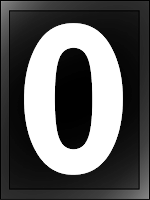Squared Subsequences - SQRDSUB (Code Chef Easy Question)
Today we will be discussing an easy problem of codechef :-
Here is the link to the Problem
https://www.codechef.com/APRIL20B/problems/SQRDSUB
The logic of the problem is fairly simple.
First , because of constraints we need to solve the problem in atmost O(nlogn) time complexity.
So instead of counting the valid subsequences we count the invalid subsequences and answer as 2^n-invalid .
To be written as a difference of two squares the product should be able to written as (p+q)(p-q);
Hence let the product be a*b .
So a=p+q;
b=p-q;
p=a+b/2;
q=a-b/2;
Hence the product should be able to be expressed as either a product of two odds or a product of two evens , which we check in our function .
As soon as we find a subsequence in which we cant express it as a product of two evens or two odds , we remove it. An odd number can always be written as a difference of two squares.
Here is the C++ code:-
Try to understand it , if you are not able to understand it , then please leave your doubts in the comments.
#include <iostream>
using namespace std;
int main() {
int t;
cin>>t;
while(t--)
{
long int n;
cin>>n;
long long int arr[n];
int i=0;
while(i!=n)
{
cin>>arr[i];
arr[i]=abs(arr[i]);
i++;
}
i=0;
long long int left=0,right=0,j,k,flag=0;
long long int ans=n*(n+1)/2;
i=0;
while(i!=n)
{
left=0;right=0;
while(arr[i]%4==0 || arr[i]%2!=0)
{
i++;
if(i==n)
{
flag=1;
break;
}
}
if(flag==1)
{
break;
}
j=i;
k=i;
j--;
left++;
while(j>-1 && arr[j]%2!=0)
{
j--;
left++;
}
i++;
right++;
//cout<<"i "<<i;
while(i<n && arr[i]%2!=0)
{
right++;
i++;
}
//cout<<"left "<<left<<" right "<<right;
ans=ans-(left)*(right);
//cout<<ans<<" ";
}
cout<<ans<<endl;
}
// your code goes here
return 0;
}
Here is the link to the Problem
https://www.codechef.com/APRIL20B/problems/SQRDSUB
The logic of the problem is fairly simple.
First , because of constraints we need to solve the problem in atmost O(nlogn) time complexity.
So instead of counting the valid subsequences we count the invalid subsequences and answer as 2^n-invalid .
To be written as a difference of two squares the product should be able to written as (p+q)(p-q);
Hence let the product be a*b .
So a=p+q;
b=p-q;
p=a+b/2;
q=a-b/2;
Hence the product should be able to be expressed as either a product of two odds or a product of two evens , which we check in our function .
As soon as we find a subsequence in which we cant express it as a product of two evens or two odds , we remove it. An odd number can always be written as a difference of two squares.
Here is the C++ code:-
Try to understand it , if you are not able to understand it , then please leave your doubts in the comments.
#include <iostream>
using namespace std;
int main() {
int t;
cin>>t;
while(t--)
{
long int n;
cin>>n;
long long int arr[n];
int i=0;
while(i!=n)
{
cin>>arr[i];
arr[i]=abs(arr[i]);
i++;
}
i=0;
long long int left=0,right=0,j,k,flag=0;
long long int ans=n*(n+1)/2;
i=0;
while(i!=n)
{
left=0;right=0;
while(arr[i]%4==0 || arr[i]%2!=0)
{
i++;
if(i==n)
{
flag=1;
break;
}
}
if(flag==1)
{
break;
}
j=i;
k=i;
j--;
left++;
while(j>-1 && arr[j]%2!=0)
{
j--;
left++;
}
i++;
right++;
//cout<<"i "<<i;
while(i<n && arr[i]%2!=0)
{
right++;
i++;
}
//cout<<"left "<<left<<" right "<<right;
ans=ans-(left)*(right);
//cout<<ans<<" ";
}
cout<<ans<<endl;
}
// your code goes here
return 0;
}

Comments
Post a Comment